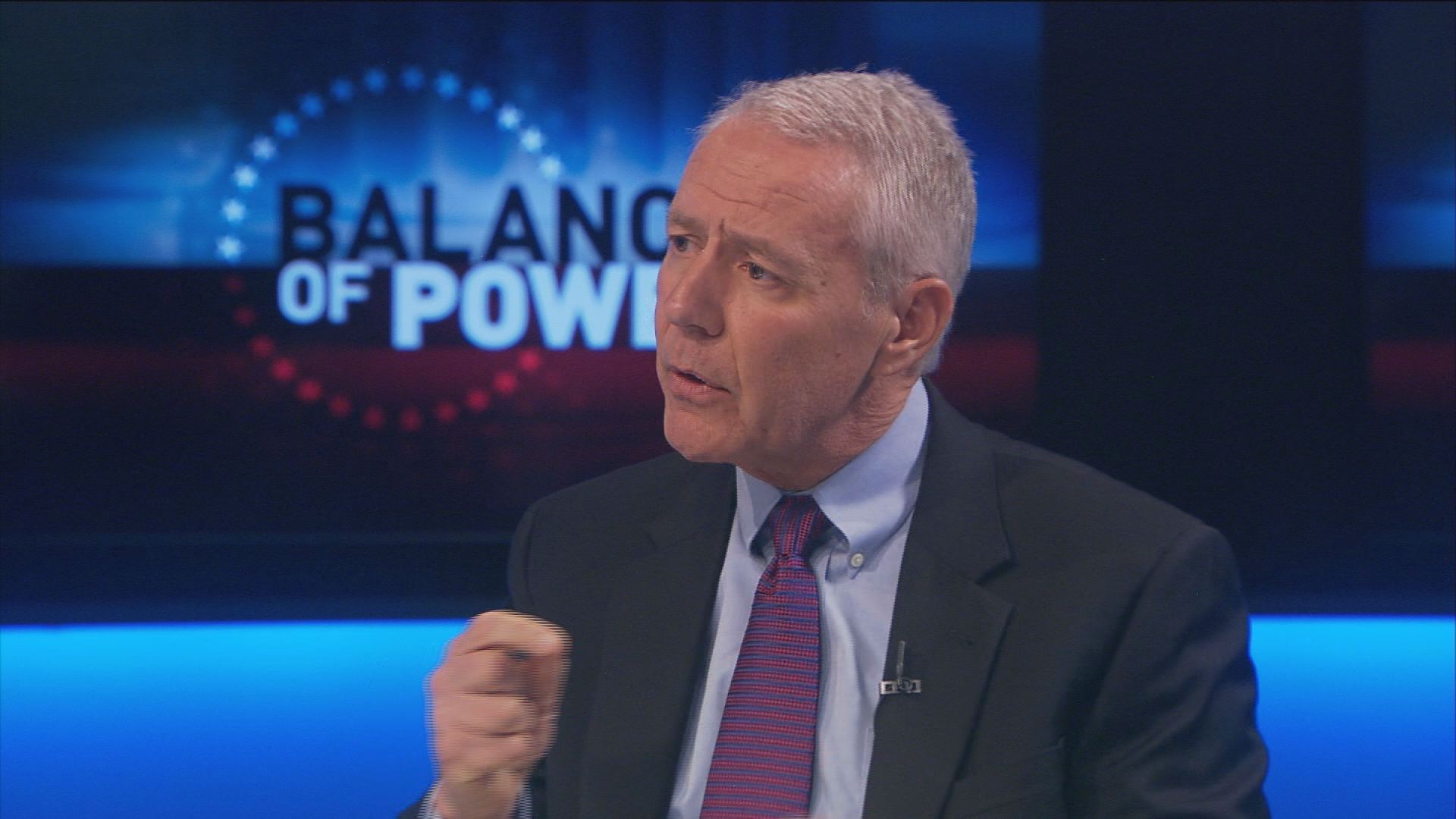Members of Congress get a week in their home districts just after House Republicans passed a bill to partially repeal the Affordable Care Act.
If it passes the Senate, the bill is likely to change significantly from this version, but it still marks a milestone in the Republican quest to repeal and replace Obamacare.
RELATED: http://www.nbcnews.com/politics/congress/here-s-what-you-need-know-about-health-care-bill-n754611
You can read more on the bill at the link above, but broadly speaking, the GOP House bill replaces the individual mandate with a penalty for lapsing in coverage, makes sweeping changes to the ACA subsidies, shrinks and modifies Medicaid, and repeals most of the ACA’s taxes.
The bill would also allow states to ask for a waiver from the ACA’s requirement that insurers not charge higher premiums for people with pre-existing conditions if those states come up with another plan to help patients already diagnosed.
Reps. Jared Polis (D-Colorado) and Ken Buck (R-Colorado) sat down together to explain their views. Buck voted yes on the bill and Polis (along with all Democrats) voted no.
The two have very different takes on whether someone who has a pre-existing condition should worry.
“It will be alright,” Buck said, pointing out that the bill includes money to help states cover people with pre-existing conditions through high-risk pools. “An additional $8 billion was put in just recently with the Upton amendment, so I believe pre-existing conditions will be covered.”
Polis begged to differ.
“It doesn’t give [states] enough money, enough block grants, to possibly support keeping prices low,” Polis said.
Buck defended his decision to vote for the bill without a CBO score, which tells lawmakers what the impact of legislation would be.
“We don’t have a price tag on some of the amendments, but we had a price tag on the bill before the bill was pulled from the floor,” Buck said, referring to the first attempt to pass the measure. Buck added that the CBO will score the bill before it gets to the Senate and that he doesn’t think it’ll change a lot from the last one.
“I do agree with Ken, [the CBO score] won’t stray much, it may be a little bit worse, but costing 24 million people their insurance? Yeah it could be 25 million, it could be 22 million, but still far too many people will lose insurance under this plan,” Polis said.
Pressed on whether it’s fair to say those people will “lose” insurance if some of them only bought it to avoid paying the tax penalty under the ACA, Polis pointed out that the GOP replacement also has a penalty which would allow insurers to charge people 30 percent more if they lapse in coverage.
“Effectively, it’s a mandate by any other name, it’s a penalty by any other name, it just gets you when you’re trying to get your family reinsured,” Polis said.
Buck responded that the individual mandate was “offensive” to a lot of people and didn’t shy away from the word “penalty” in defending the new 30 percent punishment for people who go uninsured and then come back into the system.
“What we’re trying to prevent is a situation in which someone breaks a leg and rushes out and gets insurance and tries to have those costs covered,” Buck said. “If you’re hurt and you decide to get insurance, you’re going to have a penalty for not staying covered.”
That exposes an interesting dynamic: Republicans are now in the position Democrats were in 2010, having to explain why unpleasant-sounding policies (think individual mandate) are necessary to make their healthcare law tick.
After the bill passed the House, President Donald Trump made some news by praising Australia as having better healthcare than the United States. That’s because Australia has had universal healthcare funded and administered by its federal government since 1984, the polar opposite of what conservatives want.
Asked if he thinks the President knows those facts about Australia, Buck said, “I don’t,” and cracked a grin. Asked if he agreed with the President’s assertion that Australian care is better, Buck repeated, “I don’t.”
Even if this bill were to become law, Buck said “this isn’t enough” for Republicans to keep their promise to repeal and replace Obamacare.
In contrast to President Trump’s promise to repeal the Obama-era healthcare law immediately, Buck said, “this is the first step in a very long process, a process that’s going to take years.”
Polis says we need to move toward universal coverage instead.
“Medicare basically works. It’s not perfect, but it works a lot better than this private market that people are in,” Polis said. “I’ve always supported a Medicare-for-all model, where there’s a payroll tax and everybody has coverage.”
Buck says that’s a fundamentally flawed approach for America’s economy.
“We innovate at a far greater rate than many other countries because we have a profit incentive,” Buck said. “We would never have the cell phones that we have now if the government was in charge of cell phones.”
Polis pushed back on that idea by saying Democrats aren’t interested in taking hospitals, doctors, or pharmaceuticals into the public option.
“We’re just talking about the insurance function here,” Polis said.
When pressed, Polis acknowledged that providers and drug-makers get paid by insurance, adding, “they get paid by Medicare as well. Medicare is the largest single reimburser for all the private medical sector.”
Buck pounced on that argument.
“One of the reasons that private insurance costs are going up is because Medicare under-reimburses hospitals and doctors,” Buck said. “And we can’t under-reimburse on an entire marketplace.”
Polis didn’t have a comeback for that but said that both sides ought to be able to come together to reduce costs.
At the end of our interview, Buck acknowledged that he was untruthful in an earlier interview about his stance on the first version of this healthcare bill.
RELATED: http://www.9news.com/news/local/next/colorado-congressman-ken-buck-explains-his-healthcare-flip-flop/437288128
Polis declined to share any details about when he might announce a run in the governor’s race and deflected the question with a self-deprecating wisecrack.
“Whatever people didn’t like about the Affordable Care Act, they’re going to like less about this.”
He might want to run that by a staffer or two before he adopts it as his campaign slogan.
You can view the entire raw interview for this installment of Balance of Power here:
Balance of Power airs every Sunday at 8:50 a.m. on 9NEWS, right before NBC’s Meet the Press. Episodes and extended interviews are posted on Sundays to 9NEWS.com.
YOUR THOUGHTS: connect with Balance of Power on Twitter and Facebook to send us your questions and comments. You can also send us an email. (politics@9news.com)


